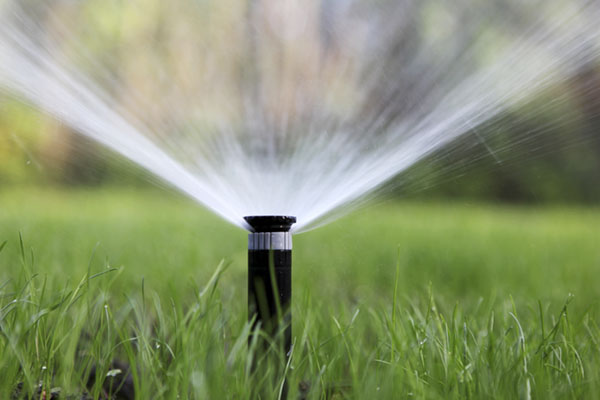
Nottingham Country MUD Shares Water Conservation Tips Ahead of Summer
Why conserve water?
The Nottingham Country MUD is currently supplied by groundwater wells, which have a limited amount of water. Additionally, our MUD is not expected to go on surface water from the City of Houston until around 2030, if then. According to the Texas Water Development Board, Texas’ population by 2050 will increase by 90%. Water demand in Texas will exceed available resources by 25%. Thus, water is clearly an issue.
The average, single-family indoor residential water use is 69 gallons per person per day. This usage can be reduced by a third by changing water-wasting habits, installing water-efficient fixtures, and reducing leaks. In addition, outdoor water use in the summer, which adds an additional about 50% to total residential water use, can be reduced significantly with proper water management while homes can still have beautiful yards.
The Nottingham Country MUD wants to make all District residents aware of the value of water everyday, not just in times of drought. Water is precious, and everyone must learn to use it responsibly without waste. Water conservation tips, as described below, can save many dollars in water bills and will also save water for future generations.
Indoors
Bathrooms
- Use low flow shower heads. They are inexpensive and are the single most efficient conservation step that you can take inside the home.
- Install inexpensive faucet aerators on bathroom sinks.
- Don’t let the water run while brushing teeth or shaving.
- Replace 1980s toilets with new low volume flush toilets that use less than half the volume of water. If you can’t replace, at least use a displacement device such as a plastic bottle or bag filled with water in the tanks of older model toilets. By the way … don’t use bricks which can crumble and damage fixtures.
- Before you leave the house for an extended period, check toilets to make sure none are accidentally left running. An open flapper valve can waste 280,000 gallons of water in a month! An open flapper valve can increase a water bill by more than $500 per month, and the resident is responsible.
- Listen for leaks and dripping sounds. Check for leaking toilets by putting food coloring in the tank, waiting ten minutes, and checking the bowl for color. Replace the flapper valve if needed.
- Replace visible leaking sink faucet washers or O-rings. If you aren’t handy, hire a plumber to perform routine maintenance on toilets and faucets.
Kitchens
- Wait until the dishwasher is full to run it. Just scrape your dishes, don’t pre-rinse them. If there is baked-on food, soak the pan or dish awhile to loosen the food, and then put it in the dishwasher. Don’t scrub dishes under running water.
- Install faucet aerators on kitchen sinks, and don’t ignore leaking faucets.
- Keep a bottle of drinking water in the refrigerator if you don’t have a chilled water dispenser on the refrigerator.
- Use your garbage disposal for big messes, and run it only when it’s full. Put piles of peelings and bones in the trash.
- Don’t leave the water running in the sink when you’re not using it.
Laundry
- Try to run full loads of wash, or at least adjust the water level on the machine for the size of the load.
- Use short wash cycles if clothes are not heavily soiled. This will also help your clothes stay new looking.
Outdoors
- Watering your lawn just twice a week should be adequate for most of the growing season.
- Don’t over-water your lawn. St. Augustine grass needs only an inch of water every 4-5 days to stay healthy. It is better to water thoroughly but infrequently.
- Use automatic sprinkler systems wisely. If you don’t have rain sensors, turn off the system during periods of heavy rain.
- Water in the evening or early morning to avoid waste due to evaporation.
- Maintain your sprinkler system. Frequently observe the sprinkler operation when you are home. Check sprinkler heads to see that they are covering the yard properly and not watering pavement. Make sure no sprinkler heads are clogged, broken off, or mis-oriented.
- Adjust the timing for the season and for different zones in the yard. Shrubs need less water than grass; consider drip irrigation, which is more efficient for shrubs and beds.
- Don’t scalp lawns. Taller grass holds moisture better and should be cut to three inches in the summer. Mulch the clippings into the grass.
- Mulch heavily around trees and shrubs and flower beds to retain moisture. Plant drought and heat-tolerant shrubs and ground covers.
- Don’t clean driveways and sidewalks with a hose. Sweep them instead.
- If you wash your car at home, use a hose nozzle to cut off water while you are soaping the car.
- Cover pools and spas to prevent evaporation. A 30 x 15 pool in our district can lose 1.5 inches of water a week or 1,800 gallons of water a month.
- Turn off decorative fountains on windy days.
- If you don’t have an automatic overflow device on your pool, delay backwashing until the pool level becomes too high from rain and needs to be lowered anyway. Backwashing wastes as much as 150 gallons of water.
Overall Leak Detection
Periodically turn off all water-using appliances in the house. Read your water meter. Read the meter again after twenty minutes, and if the meter reading has increased, look for hidden leaks.
For more information on how you can conserve water and lower your water bill, visit www.savewatertexas.org.
Source: Nottingham Country MUD









